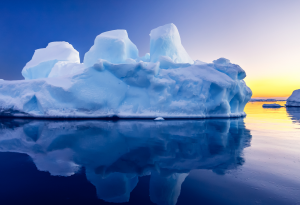M.Sc Program

Distribution of teaching during the academic year
Program studies are spread over the course of about two years (not including supplementary courses). Most of the mandatory courses take place during the first academic year.
The duration of study for the degree is up to three years.
Rationale, goals, and objectives
The curriculum in the Department of Marine Technologies is in Track A, and includes studying subjects in the field and writing a research thesis that incorporates marine-related technological content in order to help develop tools to advance marine research and the content of marine science in general.
The departmental teaching program covers a wide range of topics, including scientific, marine, and technological subjects in a marine context. In addition, students will study experimental methods for marine research, with an emphasis on applying advanced technologies in experimental research. Students will also participate in marine research expeditions, during which they will acquire knowledge in the operation and development of advanced marine technological tools.
Admission requirements for the program
Graduates with an undergraduate degree (a four-year BSc) in mechanical engineering, electrical engineering, electro-optics, aeronautics, computer science, and/or in sciences related to these fields from a recognized higher education institution in Israel or abroad, with an average grade of at least 80, may be admitted to the program. Exceptions will be discussed by a departmental committee.
For admission, candidates must submit a CV, a letter of intent, and the names of two referees.
Before commencing study, candidates will be required to contact their potential supervisor (departmental faculty member) and agree on a research topic. The supervisor’s formal notification of willingness to supervise the candidate’s thesis is a condition for admission to study in the master program.
The scope of studies in the program is 36 semester hours per week according to the following breakdown:
List of Mandatory and recommended elective courses:
- Mandatory courses (divided into two clusters):
- Cluster 1: 14 credits. Students should select 7 of the 8 courses from the list below.
- Cluster 2: Departmental seminar and school seminar—these are mandatory ungraded (pass/fail) courses. Candidates must register for these courses for 4 semesters during their studies.
- Departmental seminar: for scholarship students—attendance at 70% of the seminars during the semester is mandatory. Full attendance at lectures by external lecturers (around 2 per semester) is mandatory for all students.
- Elective courses
Elective courses consist of 10–14 credits (depending on the student’s academic background), and are selected according to the following guidelines: Students may choose elective courses from courses listed in the various faculties of the University of Haifa or the Technion, at another university in Israel or abroad (the University of Haifa will handle the payment arrangements), or at the Interuniversity Institute for Marine Sciences in Eilat. Course choices will be made in coordination and agreement with the student’s research thesis supervisor(s) and the Chair of the Departmental Committee for Master’s Studies.
- Research work (thesis)- 8*-12 semester hours.
Program structure summary
Year | Mandatory Courses (Semester Hours) | Elective Courses (Semester Hours) | Research Work (Thesis) | Total |
1 | 14 | – | – | 14 |
2 | – | 10–14* | 8*-12 | 22–26 |
Total | 14 | 10–14* | 8*-12 | 36 |
*14 Semester Hours—for students who have a three-year undergraduate degree
*8 Semester Hours—for students who have a three-year undergraduate degree
Cluster 1: Mandatory courses—select 7/8
| ||
Course | Semester Hours | Lecturer |
Principles of Subsea Engineering | 2 | Prof. Morel Groper
|
Principles of Underwater Photography and Computer Vision in Marine Research | 2 | Prof. Tali Treibitz
|
The Mediterranean Sea 1 | 2 | Prof. Revital Bookman
|
Underwater Acoustic Signal Processing | 2 | Prof. Roee Diamant
|
Geophysical Methods in the Study of the Marine Environment
| 2 | Prof. Yizhaq Makovsky
|
Navigation and Inertial Sensors | 2 | Prof. Itzik Klein
|
Scientific Writing
| 2 | Dr. Beverly Goodman Tschernov
|
Sailing Course | 2 | Prof. Roee Diamant
|
Elective Courses
| ||
Principles of Underwater Vehicles
| 2 | Prof. Morel Groper |
Physics-Based Computer Vision in a Diffuse Medium | 2 | Prof. Tali Treibitz
|
Advanced Techniques in Signal Processing | 2 | Prof. Roee Diamant |
Processing and Visualization of Seismic Data | 2 | Prof. Yizhaq Makovsky
|
Autonomous Submarine Navigation | 2 | Prof. Itzik Klein
|
Elective Courses at the School of Marine Sciences
| ||
Practical Workshops in Seismic Data Processing and Analysis
| 2 | Prof. Yizhaq Makovsky
|
Decoding Seismic Data
| 2 | Prof. Uri Schattner |
Numerical Methods in Physics Sequences | 2 | Dr. Regina Katsman |
Physical Oceanography | 2 | Prof. (Emeritus) Boris Katznelson |
Additional elective courses from faculties at other universities (coordinated and agreed upon by the research work supervisor and the Chair of the Departmental Committee).
Department’s scholarships are given according to university regulations.
For additional scholarships information please go to the Graduate Studies Authority site: http://graduate.haifa.ac.il/index.php/en/english
Graduates of the Marine Technologies Department will find employment in biotechnology companies, green/environmental organizations, government ministries, government research institutes, environmental consulting organizations, marine monitoring firms, and in a variety of maritime-oriented positions, academic research, and teaching.
Discover our alumni and their journeys today.




